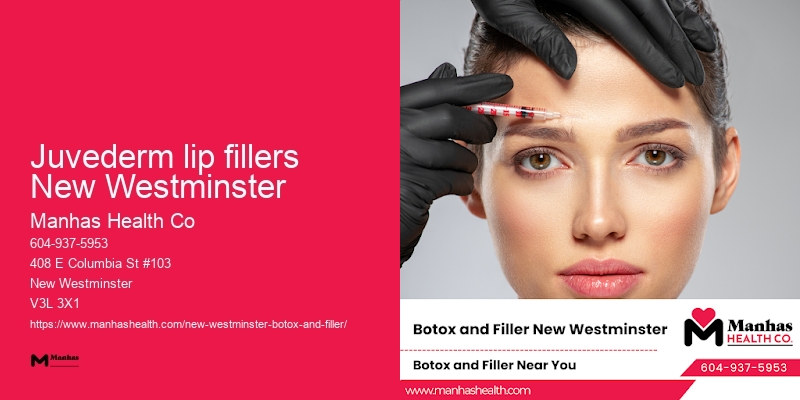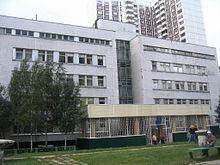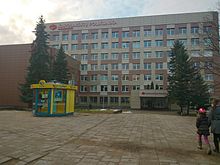

This sample is then spun in a centrifuge to separate the platelet-rich plasma (PRP) from other blood components. Let's help you achieve your aesthetic goals with the precision and care you deserve.
Next, the area of your scalp being treated will be prepared. Remember, your safety and satisfaction are paramount, so don't hesitate to ask questions and express any concerns during your consultation. Step into a world where your beauty and confidence are in perfect harmony. Our follow-up appointments are meticulously scheduled to monitor your progress and make any necessary adjustments. To book your first consultation at Manhas Health Co., simply visit our website or give us a call, and we'll guide you through every step of the process.
Non-surgical options are emerging as game-changers, offering results without the downtime or risks associated with surgery. Follow these directions closely to prevent infection and promote optimal healing. Your skin feels smoother, looks brighter, and exudes a healthy radiance that's hard to miss. If you have active skin infections, are pregnant, or have certain medical conditions, it mightn't be the right choice for you.
After diligently following post-treatment care tips, you're now ready to celebrate the glowing results of your dermaplaning or chemical peel.
New Westminster (colloquially known as New West) is a city in the Lower Mainland region of British Columbia, Canada, and a member municipality of the Metro Vancouver Regional District. It was founded by Major-General Richard Moody as the capital of the Colony of British Columbia in 1858 and continued in that role until the Mainland and Island colonies were merged in 1866. It was the British Columbia Mainland's largest city from that year until it was passed in population by Vancouver during the first decade of the 20th century.
Imagine walking out with a refreshed, more youthful appearance that feels as natural as it looks. Lastly, those with TMJ disorders may find Botox treatments at Manhas Health Co a source of relief from jaw tension, thereby improving quality of life.


Imagine reducing your headache days significantly, allowing you to enjoy life more fully. We believe in a holistic approach to aesthetics, so your initial consultation will be comprehensive. These aren't just isolated incidents; they're a testament to the transformative power of Morpheus 8 resurfacing and PRP hair restoration. This reduces the risk of complications and enhances healing.
PRP therapy starts with drawing a small amount of your blood.
They also specialize in non-surgical face lifts and body contouring, providing you with alternatives to more invasive procedures. Sunburned or tanned skin can negatively affect the procedure's effectiveness and increase the risk of side effects. Botox for neck bands New Westminster They offer special discounts to community heroes, including healthcare workers, teachers, and first responders, acknowledging their hard work and dedication. Securing your spot couldn't be easier.


Imagine stepping into the serene ambiance of Manhas Health Co. in Juvederm lip fillers New Westminster, where the latest advancements in vaginal rejuvenation await to enhance your wellbeing and confidence. However, it's important to manage your expectations. As a result, you'll notice an immediate tightening effect, alongside a gradual improvement in skin texture and firmness. In an age where aging gracefully is for the storybooks, you've probably considered turning back time with a little help from modern medicine.
This includes a detailed questionnaire about your medical history, lifestyle, and aesthetic goals. We understand that everyone's aesthetic goals are unique, and we're here to craft a personalized plan that aligns with your desires and lifestyle. Evolve-X isn't just about sculpting your body; it's about enhancing your overall quality of life. Non-surgical facelift New Westminster
Each session lasts about 30 minutes, making it a perfect lunchtime treatment. You can choose to pay upfront using cash, credit, or debit cards. You might wonder about the process's specifics.
You'll find yourself moving with more confidence, liberated from the insecurities that once held you back. You're essentially using your body's own healing mechanisms to revitalize your scalp and enhance hair growth, making it a holistic approach to combating hair loss. Dive into our Before and After Gallery to see the transformations for yourself.
But perhaps one of the most valued benefits is the boost in self-esteem. We then use this information to create a tailored regimen that includes cutting-edge products and innovative treatments, ensuring that you're getting exactly what your skin needs to thrive. Don't let the years dictate your skin's story. So, why wait?
This ensures that the laser or IPL device can work as efficiently as possible. Our approach ensures that each procedure, from minimally invasive treatments to more extensive interventions, is chosen and adjusted specifically for you.


A clinic (or outpatient clinic or ambulatory care clinic) is a health facility that is primarily focused on the care of outpatients. Clinics can be privately operated or publicly managed and funded. They typically cover the primary care needs of populations in local communities, in contrast to larger hospitals which offer more specialized treatments and admit inpatients for overnight stays.
Most commonly, the English word clinic refers to a general practice, run by one or more general practitioners offering small therapeutic treatments, but it can also mean a specialist clinic. Some clinics retain the name "clinic" even while growing into institutions as large as major hospitals or becoming associated with a hospital or medical school.

The word clinic derives from Ancient Greek κλίνειν klinein meaning to slope, lean or recline. Hence κλίνη klinē is a couch or bed and κλινικός klinikos is a physician who visits his patients in their beds.[1] In Latin, this became clīnicus.[2][3]
An early use of the word clinic was "one who receives baptism on a sick bed".[4]

Clinics are often associated with a general medical practice run by one or several general practitioners. Other types of clinics are run by the type of specialist associated with that type: physical therapy clinics by physiotherapists and psychology clinics by clinical psychologists, and so on for each health profession. (This can even hold true for certain services outside the medical field: for example, legal clinics are run by lawyers.)
Some clinics are operated in-house by employers, government organizations, or hospitals, and some clinical services are outsourced to private corporations which specialize in providing health services. In China, for example, owners of such clinics do not have formal medical education. There were 659,596 village clinics in China in 2011.[5]
Health care in India, China, Russia and Africa is provided to those regions' vast rural areas by mobile health clinics or roadside dispensaries, some of which integrate traditional medicine. In India these traditional clinics provide ayurvedic medicine and unani herbal medical practice. In each of these countries, traditional medicine tends to be a hereditary practice.

The function of clinics differs from country to country. For instance, a local general practice run by a single general practitioner provides primary health care and is usually run as a for-profit business by the owner, whereas a government-run specialist clinic may provide subsidized or specialized[dubious – discuss] health care.
Some clinics serve as a place for people with injuries or illnesses to be seen by a triage nurse or other health worker. In these clinics, the injury or illness may not be serious enough to require a visit to an emergency room (ER), but the person can be transferred to one if needed.
Treatment at these clinics is often less expensive than it would be at a casualty department. Also, unlike an ER these clinics are often not open on a 24/7/365 basis. They sometimes have access to diagnostic equipment such as X-ray machines, especially if the clinic is part of a larger facility. Doctors at such clinics can often refer patients to specialists if the need arises.[6]

Large outpatient clinics vary in size, but can be as large as hospitals.
Typical large outpatient clinics house general medical practitioners (GPs) such as doctors and nurses to provide ambulatory care and some acute care services but lack the major surgical and pre- and post-operative care facilities commonly associated with hospitals.

Besides GPs, if a clinic is a polyclinic, it can house outpatient departments of some medical specialties, such as gynecology, dermatology, ophthalmology, otolaryngology, neurology, pulmonology, cardiology, and endocrinology. In some university cities, polyclinics contain outpatient departments for the entire teaching hospital in one building.

Large outpatient clinics are a common type of healthcare facility in many countries, including France, Germany (long tradition), Switzerland, and most of the countries of Central and Eastern Europe (often using a mixed Soviet-German model), as well as in former Soviet republics such as Russia and Ukraine;[7] and in many countries across Asia and Africa.[8]
In Europe, especially in the Central and Eastern Europe, bigger outpatient health centers, commonly in cities and towns, are called policlinics (derived from the word polis, not from poly-).
Recent[when?] Russian governments have attempted to replace the policlinic model introduced during Soviet times with a more western model. However, this has failed.[9]
In the Czech Republic, many policlinics were privatized or leasehold and decentralized in the post-communist era: some of them are just lessors and coordinators of a healthcare provided by private doctor's offices in the policlinic building.[10]
India has also set up huge numbers of polyclinics for former defense personnel. The network envisages 426 polyclinics in 343 districts of the country which will benefit about 33 lakh (3.3 million) ex-servicemen residing in remote and far-flung areas.[11]
Policlinics are also the backbone of Cuba's primary care system and have been credited with a role in improving that nation's health indicators.[12]


Providing health services through mobile clinics provides accessible healthcare services to these remote areas that have yet to make their way in the politicized space. For example, mobile clinics have proved helpful in dealing with new settlement patterns in Costa Rica. Before foreign aid organizations or the state government became involved in healthcare, Costa Rica's people managed their own health maintenance and protection.[13] People relied on various socio-cultural adaptations and remedies to prevent illnesses, such as personal hygiene and settlement patterns.[13] When new settlements that sprang up along the coast became "artificial" communities, and due to lack of traditional home healing practices here, alternative methods such as mobile clinics had to be implemented in these communities for the protection and prevention of diseases.[13]
A study done in rural Namibia revealed the health changes of orphans, vulnerable children and non-vulnerable children (OVC) visiting a mobile clinic where health facilities are far from the remote villages.[14] Over 6 months, information on immunization status, diagnosis of anemia, skin and intestinal disorders, nutrition, dental disorders was collected and showed that visits to mobile clinics improved the overall health of children that visited regularly. It concluded that specified "planning of these programs in areas with similarly identified barriers may help correct the health disparities among Namibian OVC and could be a first step in improving child morbidity and mortality in difficult-to-reach rural areas."[14]

Food supplementation in the context of routine mobile clinic visits also shows to have improved the nutritional status of children, and it needs further exploration as a way to reduce childhood malnutrition in resource-scarce areas. A cross-sectional study focussed on comparing acute and chronic undernutrition rates prior to and after a food-supplementation program as an adjunct to routine health care for children of migrant workers residing in rural communities in the Dominican Republic.[15] Rates of chronic undernutrition decreased from 33% to 18% after the initiation of the food-supplementation program and shows that the community members attending the mobile clinics are not just passively receiving the information but are incorporating it and helping keep their children nourished.[15]

There are many different types of clinics providing outpatient services. Such clinics may be public (government-funded) or private medical practices.
cite book: |website= ignored (help)
In general, a filler is something that is used to fill gaps. Specialized meanings include:
You'll find Evolve-X treatments generally cost less over the long term compared to traditional surgical options. Thanks to fewer recovery times and minimal follow-up care, you save money and time while achieving desired results.
You're curious about Evolve-X's environmental impact and Manhas Health Co.'s sustainability efforts. They're committed to eco-friendly practices, reducing waste and energy use, ensuring your body sculpting journey doesn't harm the planet.
Yes, you can combine Evolve-X treatments with other wellness or beauty treatments for optimal results. Recommended pairings include facials, massage therapy, and hydration treatments to enhance your overall well-being and aesthetic outcomes.